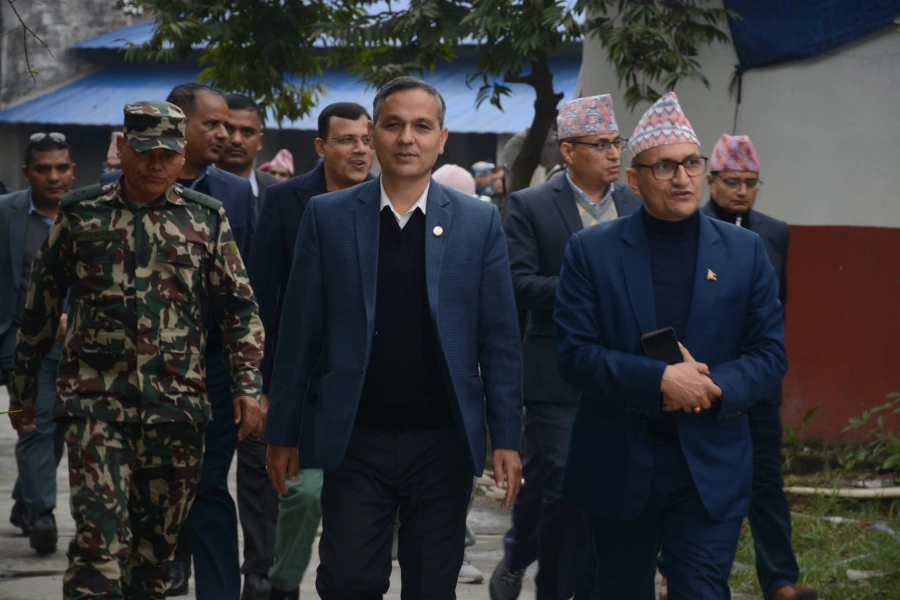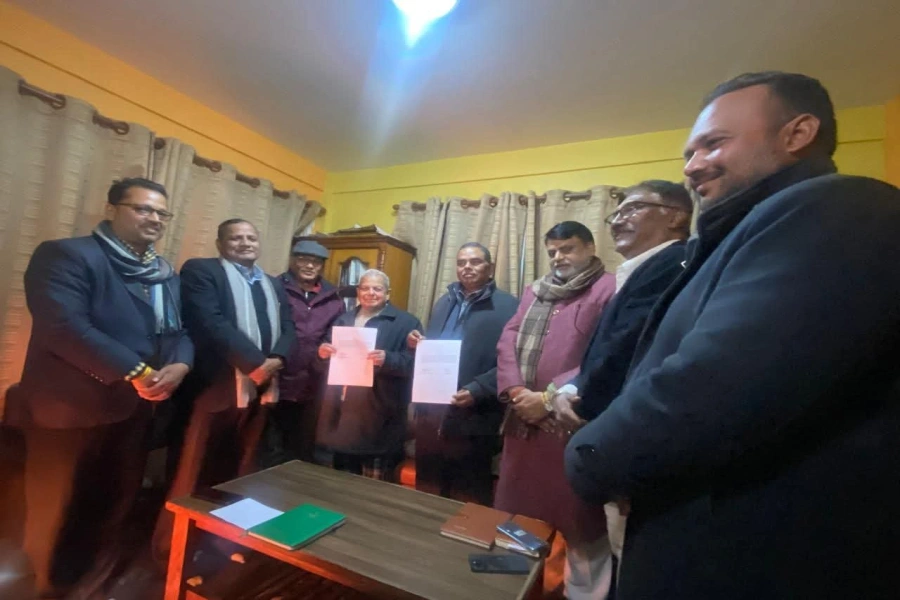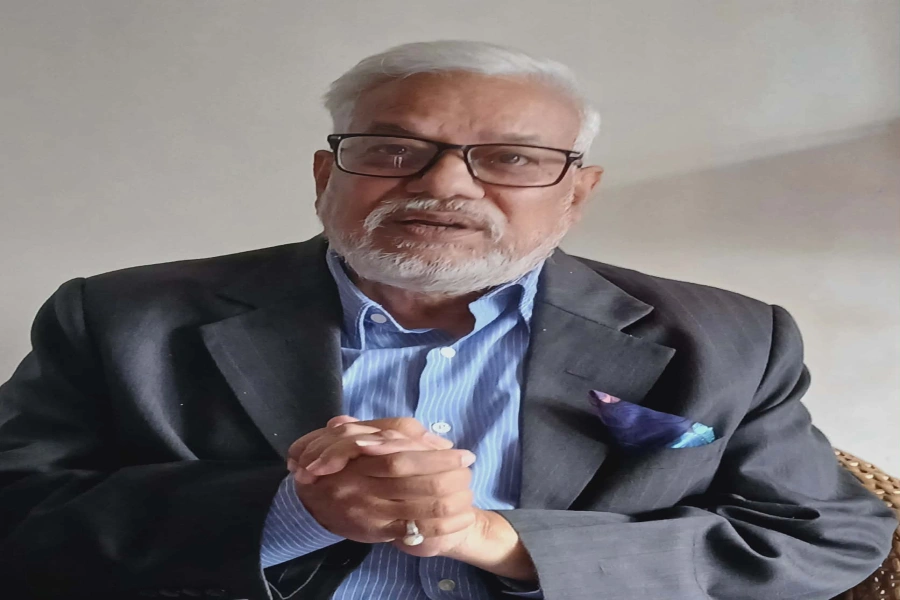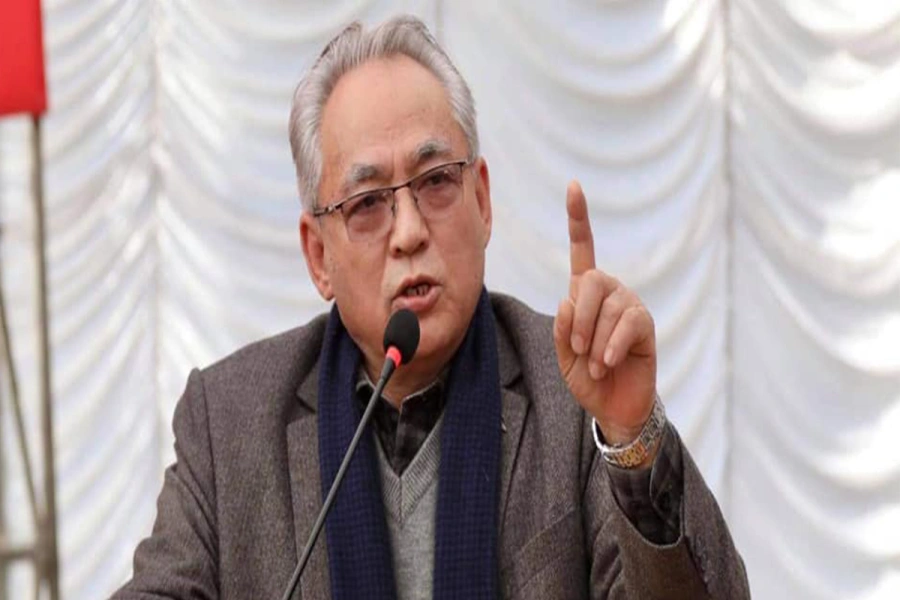China is reported to have invested between US $130 and $140 billion abroad in 2015. Not even a percent of this came to Nepal
Let’s face a fact first. Over the last two decades—from fiscal 1995/96 to 2015/16—Nepal received a net foreign direct investment (FDI) of only Rs 47.366 billion (See table).
According to experts, less than one-third of this foreign money came into the country’s hydropower sector. Since the net FDI that Nepal received over the past two decades is not even Rs 50 billion, we cannot expect a huge FDI in hydropower which is a capital-intensive sector.
It’s sad that despite having a great potential, Nepal’s hydropower sector has failed to attract any significant amount of FDI. Though China and India, Nepal’s two immediate neighbors, are the two biggest exporters of FDI to Nepal, given their potential, even they are not making any significant investment in the country’s hydropower sector.
This is strange.
First, China. China is one of the global leaders in terms of making investments abroad. A few Chinese companies are working with their Nepali partners to develop a project or two in Nepal at present, but the general consensus is that China could have done much bigger and better. China’s global outward FDI has been on an impressive growth trajectory for the last decade; its global outward FDI stock now exceeds US $1 trillion, triple the amount compared to just five years ago. This impressive growth has made China one of the world’s largest exporters of FDI, accounting for almost 10 percent of global outward FDI flows.
China alone is said to have invested somewhere between US $130 and $140 billion in various parts of the world in 2015. But the sad part is that not even one percent of this huge Chinese investment is coming to Nepal. The Chinese have been investing generously in Europe and Africa but refraining from doing the same in their immediate neighborhood.
Now, India. India is in no way a global leader like China when it comes to making investments in other countries. But many in Nepal believe that India is interested in Nepal’s water because of its energy and irrigation needs. Going by this logic, India should have invested hugely in our hydropower sector. But the reality is different. Presently, Indian companies have shown interest in only a couple of power projects in the country.
It’s even worse since Nepal has signed a Bilateral Investment Promotion and Protection Agreement (BIPPA) and a Double Taxation Avoidance Agreement (DTAA) with India (in fact, Nepal has signed BIPPA with five other countries—Finland, Germany, Mauritius, the United Kingdom and France—and DTAA with nine other countries—China, Korea, Mauritius, Norway, Pakistan, Qatar, Sri Lanka and Thailand).
I have discussed the major reasons why significant amount of FDI is not coming to Nepal, not even from the immediate neighbors, and what can we possibly do about that in the last two article of this series. This article is focused on what more we can do.
Lincoln neighborhood creates street mural to slow drivers

Promoting Nepal
After reading the first article of this series (The FDI route, Aug 15), Saurabh Rijal, a reader, asked, “Which agency is responsible for promoting Nepal as an investment destination? The Department of Industry (FDI Section), the Investment Board Nepal or the Investment Promotion Board? What are they doing to promote Nepal as an investment destination? How are they coordinating with each other in this regard?”
Rijal raised some serious questions which prompted me to inquire with the officials at the agencies named above about the matter. And the enquiries revealed that none of them are doing anything significant to promote Nepal as an investment destination. All of them are waiting for their cue from Nepal Tourism Board, which has the onus of promoting Nepal as a tourist destination. Perhaps all the three agencies are supposed to promote Nepal as an investment destination but none are doing it effectively. As they say, everybody’s responsibility turns out to be nobody’s responsibility.
This has to be corrected without any further ado. Nepal must be promoted as an investment destination abroad at least in countries like India, China, South Korea, Germany, USA, France and Norway which have been the major source of FDI for the country.
According to the information posted on its website, Investment Board Nepal is supposed to function as the central agency for investment promotion and facilitation. But according to IBN officials, budget constraint has been the biggest hurdle to promoting the country as an investment destination abroad. The government should do all it can to remove this hurdle.
Economic diplomacy
Our embassies abroad have to be active, to say the least. And let’s start this from our immediate neighborhood. We have permanent diplomatic missions in both India and China which have been working for the past several decades to keep our bilateral ties with our neighbors smooth and balanced. Now they need to practice economic diplomacy, or, in other words, diplomacy for development.
Our embassies and consulates should organize regular interactions with possible investors and apprise them of investment opportunities in the country. Economic diplomacy has to be an integral part of our foreign policy. This means our ambassadors abroad, especially in India and China, should not be mere diplomats; they ought to be economic diplomats. Also, the idea of establishing FDI desks at our embassies looks desirable as well as feasible. These desks will reach out to probable investors and facilitate the FDI process.
The embassies should work together with the bilateral business chambers such as the Nepal-India Chambers of Commerce and Industry and the Nepal-China Chambers of Commerce and Industry in explaining to the probable investors from these countries the opportunities in Nepal.
Let’s leave no stone unturned to attract FDI in this vital sector.






































